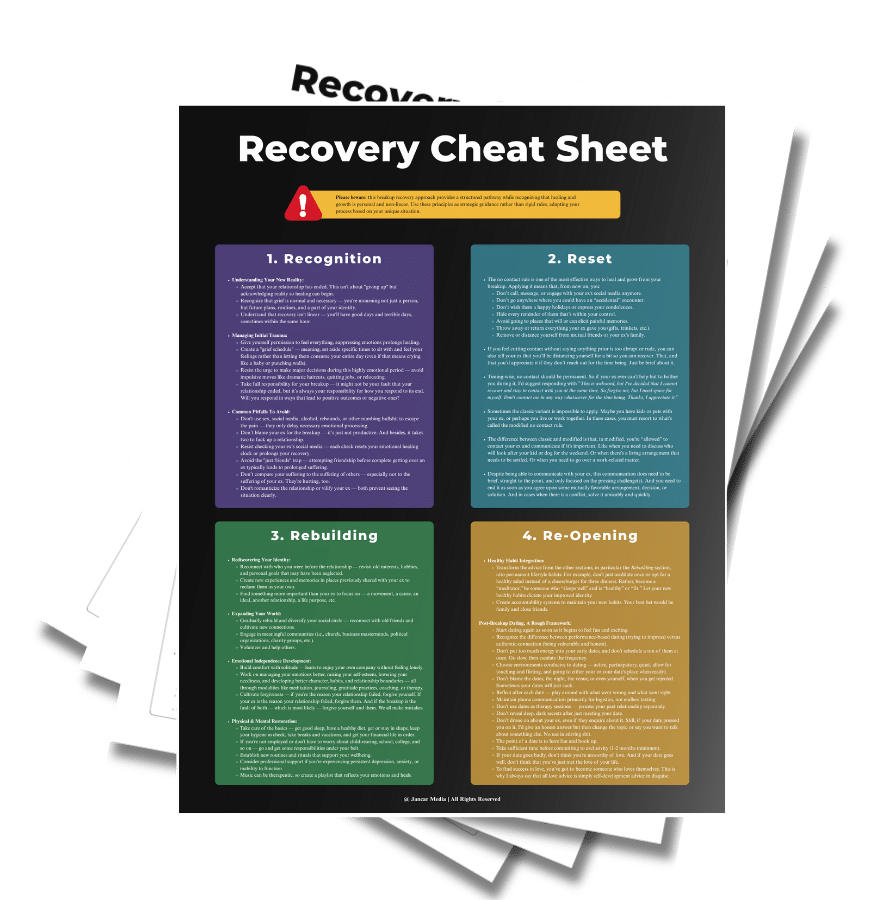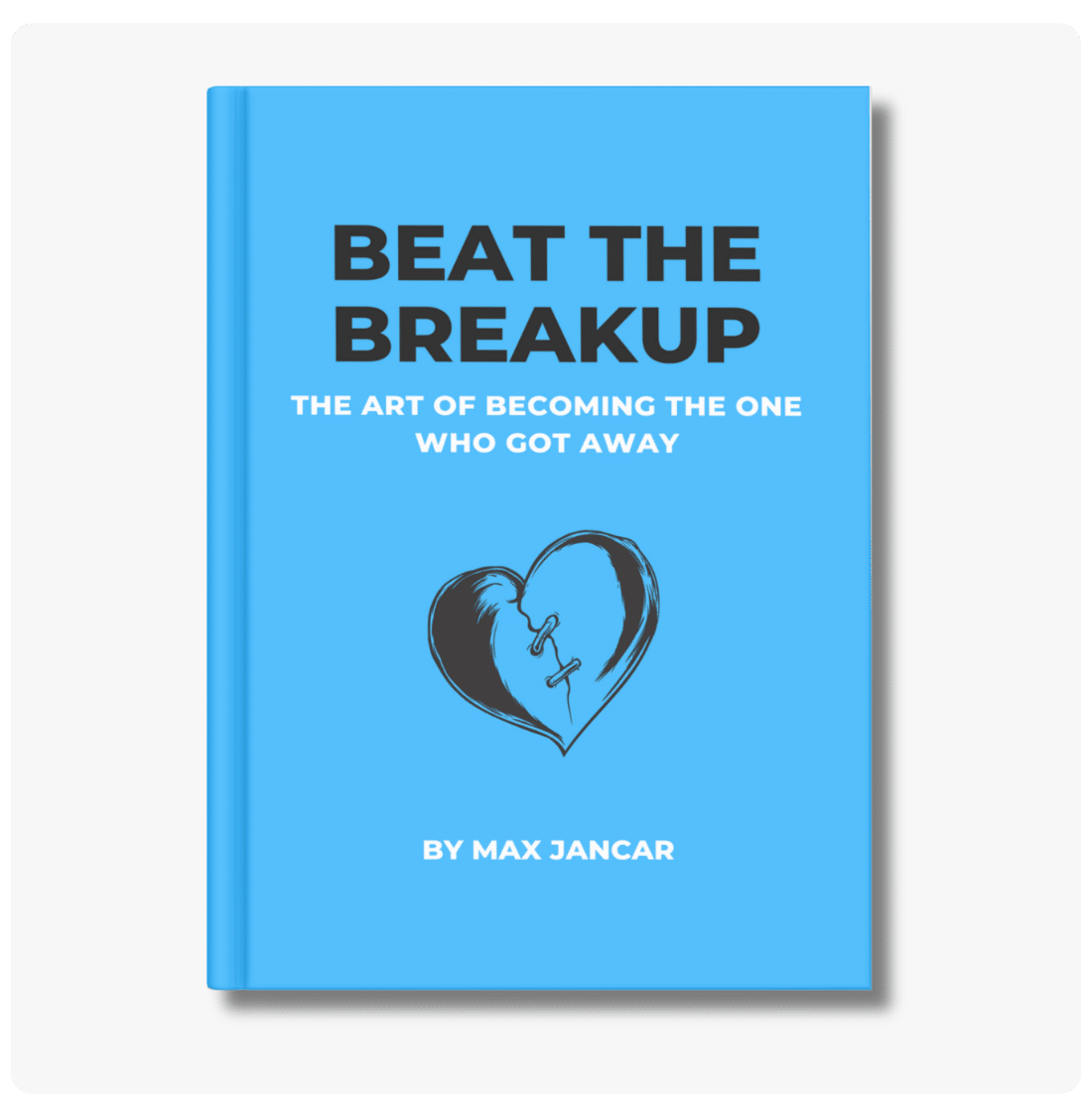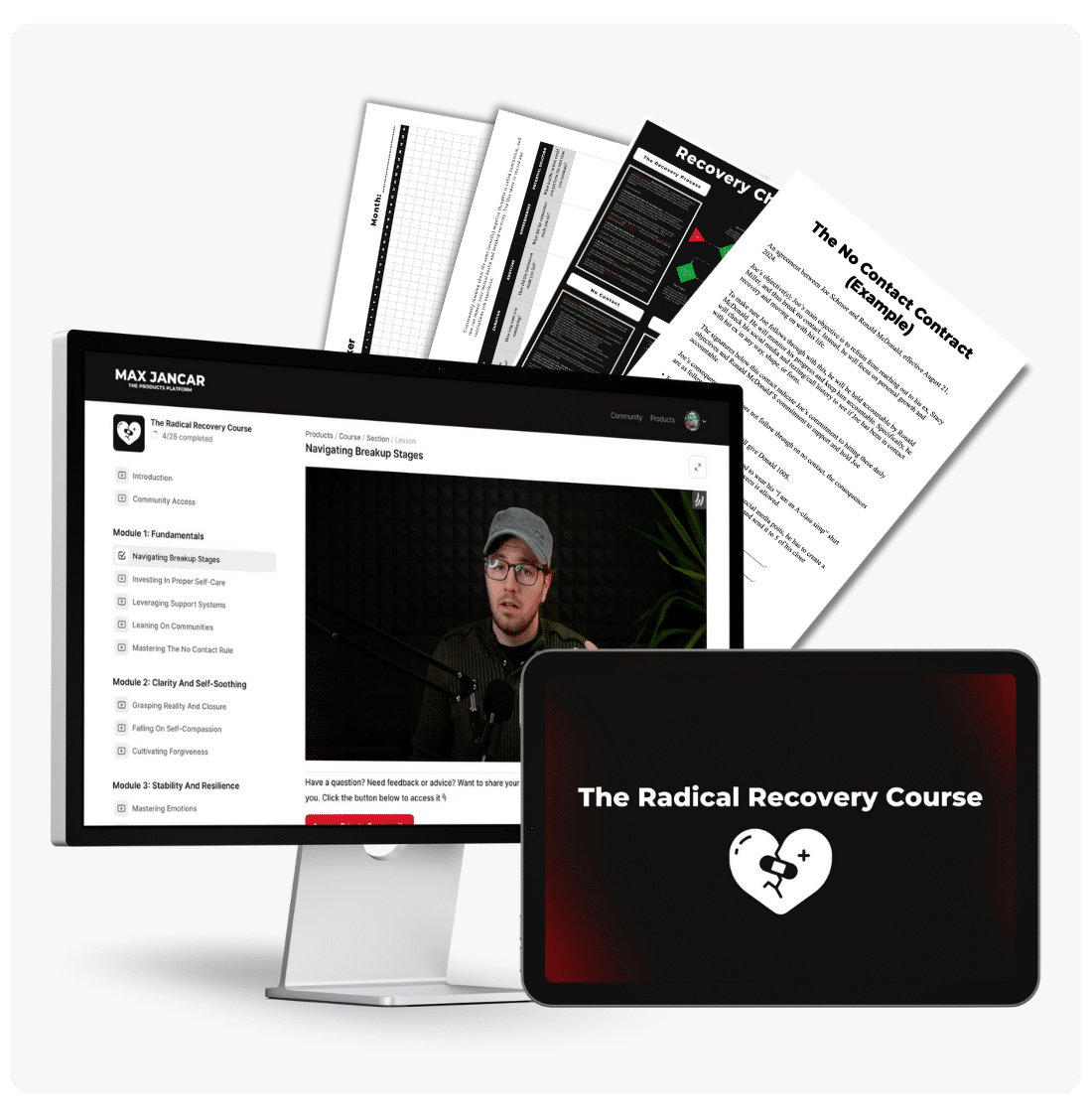Click play to listen to this article.
If you’ve read some of my older articles, you know I’m a sucker for journaling. It truly is one of those habits that can yank you up from the depths of grief. At best, it changes your entire life.
Most people know they should keep a journal, especially during the initial stages of breakup recovery, but they don’t. Instead, they feed themselves embarrassing excuses — I don’t have time, I don’t know what to write, I don’t feel like doing it…
Look. I know journaling can be tedious, but there is a new, less tedious version in town. It’s coined Plus Minus Next Journaling. And it was created by Anne-Laure Le Cunff, the founder of Ness Labs, a popular productivity blog.
Here’s how you can leverage this new form of journaling to speed up your breakup recovery. Or deal with just about any other lemon life hurls in your face.
A guide to breakup recovery based on embracing discomfort, extracting wisdom from dark moments, and healing through evidence-based practices.
Order Your CopyStep 1
Bust out a piece of paper. Yes, we’re doing this old-school style, bitch. Why? Because there’s a bunch of research out there that proves how writing thoughts and emotions down on paper is far more cathartic than typing on a keyboard. (1) (2)
And this research doesn’t just relate to journaling but many other modalities for emotional release and productivity: freeform writing, challenging limiting beliefs, overcoming negative self-talk, befriending the inner critic, etc.
This cheat sheet lays out 40+ solutions to overcoming a breakup so you can create a new opportunity for love — be that with your ex or someone completely different.
Get The Free Cheat SheetStep 2
Draw three columns on your piece of paper. At the top of each one, write “+,” -,” and “→.”
- The plus symbol stands for what went well during a certain period of time — what made you happy.
- The minus symbol stands for what went badly during a certain period of time — negative events or periods of inertia.
- The arrow symbol stands for what you’ll do next in a certain period of time — your plan moving forward.
Note that the aforementioned “period of time” can be whatever you want: a day, a week, a month, three months, or ten years. I like to stick with one week, though. I found that to be most optimal. It’s also a period the original guide on Plus Minus Next Journaling instructs you to follow.
Here’s an image to help you conceptualize this step:
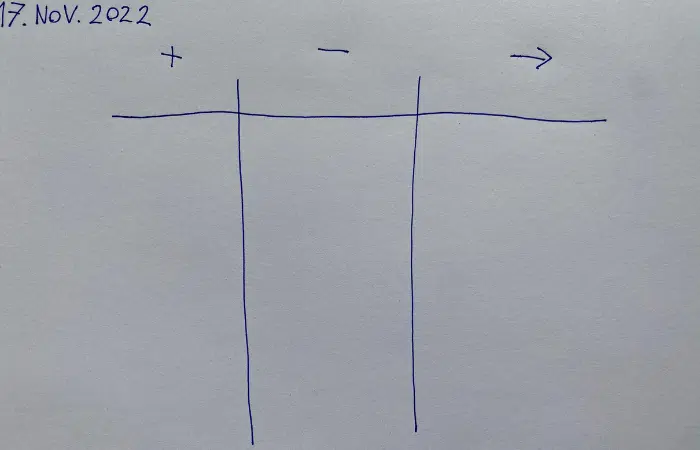
Step 3
Fill your three columns with events from the past whatever time period you chose.
An example of a “+” could be, “I worked out every day this past month,” or “I didn’t have an emotional breakdown the whole week!”
An example of a “-” could be “I jerked off 15 times too many today on my ex’s photo” or “I followed my ex home this evening without her knowing.”
An example of a “→” could be, “Do a minimum of 150 minutes of cardio next week,” “Cobble together ten new articles till the end of the month,” or “Keep sticking with no contact.”
Here’s another image to illustrate this step:
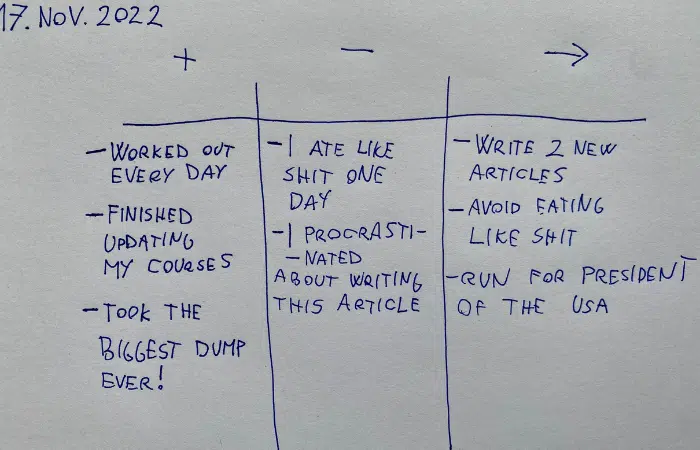
The last thing you should do is cross out everything unimportant and non-urgent in your third column. Because, as I initially argued in my article on productivity, it’s the omission of the frivolous and unnecessary and the sole focus on the essential few that makes you super productive.
Final Thoughts
An online course that teaches you how to heal and grow from a breakup so you can create a new possibility for love — with or without your ex.
Get Instant AccessPlus Minus Next Journaling is ultimately, as far as I felt, an activity intertwined with mindfulness and letting go. As with traditional journaling or meditation, there are clear steps to follow to do it right. Obviously. But there is also a component of “going with the flow” imbued in the activity.
The point of this is to say: don’t think too hard about what you’ll write or how long it’ll take you to finish the activity. Also, don’t beat yourself up if it’s not going smoothly. It’s this sort of mentality that yields unnecessary writer’s block — a.k.a., anxiety. Instead, take a few deep breaths before putting the pen to paper, and then just gut yourself open.
Don’t think, “should I put this down.” Just put it down. Don’t ask, “Is this important enough?” You can always cross it out later. Don’t lament, “What’s the point? It won’t work anyway!” Maybe it won’t, and you’ll lose a few minutes of your life. Boo-fucking-hoo. Or it will work, and you’ll open your mind to a whole new world.
This cheat sheet lays out 40+ solutions to overcoming a breakup so you can create a new opportunity for love — be that with your ex or someone completely different.
Get The Free Cheat SheetRelated Reading
- How To Love Yourself After A Breakup (7 Realistic Activities) November 20, 2021
- How To Get Over Your Ex And Move On For Good February 10, 2023
- How To Forgive Your Ex When You Can’t Forget Them February 12, 2024
- Finding Hope After Heartbreak May 26, 2020
- Why Do Breakups Hurt (Even When You Wanted It) September 6, 2021
- 30 Absolute Best Books To Read After A Breakup September 29, 2023
